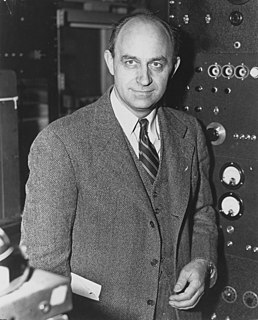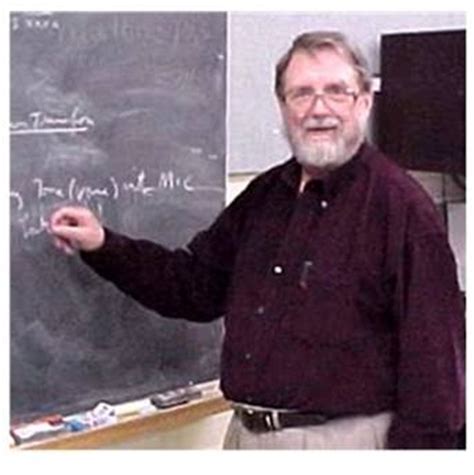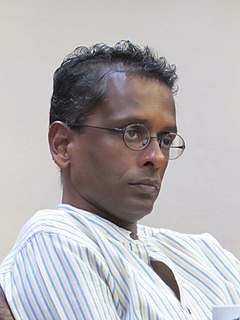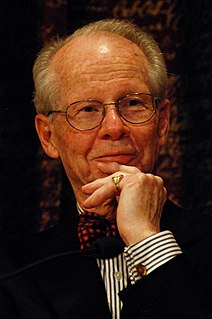A Quote by Enrico Fermi
There are two possible outcomes: if the result confirms the hypothesis, then you've made a measurement. If the result is contrary to the hypothesis, then you've made a discovery.
Quote Topics
Related Quotes
However the machine would permit us to test the hypothesis for any special value of n. We could carry out such tests for a sequence of consecutive values n=2,3,.. up to, say, n=100. If the result of at least one test were negative, the hypothesis would prove to be false; otherwise our confidence in the hypothesis would increase, and we should feel encouraged to attempt establishing the hypothesis, instead of trying to construct a counterexample.
Then he is a monster!" the Prince crowed, "and I must slay him at once. The Formula works!" "Your Formula must result in a great deal of fighting," I mused. "Oh, yes, when applied correctly mighty and noble battles result! Of course I always win—the value of Prince X is a constant. It cannot be lesser than that of Monster Y—this is the Moral Superiority Hypothesis made famous five hundred years ago by my ancestor Ethelred, the Mathematician-King. We have never seen his equal, in all these centuries.
[Coining phrase "null hypothesis"] In relation to any experiment we may speak of this hypothesis as the "null hypothesis," and it should be noted that the null hypothesis is never proved or established, but is possibly disproved, in the course of experimentation. Every experiment may be said to exist only in order to give the facts a chance of disproving the null hypothesis.
Mr. Darwin's hypothesis is not, so far as I am aware, inconsistent with any known biological fact; on the contrary, if admitted, the facts of Development, of Comparative Anatomy, of Geographical Distribution, and of Palaeontology, become connected together, and exhibit a meaning such as they never possessed before; and I, for one, am fully convinced that if not precisely true, that hypothesis is as near an approximation to the truth as, for example, the Copernican hypothesis was to the true theory of the planetary motions.
But I should be very sorry if an interpretation founded on a most conjectural scientific hypothesis were to get fastened to the text in Genesis... The rate of change of scientific hypothesis is naturally much more rapid than that of Biblical interpretations, so that if an interpretation is founded on such an hypothesis, it may help to keep the hypothesis above ground long after it ought to be buried and forgotten.
Therefore, a grotesque account of a period some thousands of years ago is taken seriously though it be built by piling special assumptions on special assumptions, ad hoc hypothesis [invented for a purpose] on ad hoc hypothesis, and tearing apart the fabric of science whenever it appears convenient. The result is a fantasia which is neither history nor science.
What is the fundamental hypothesis of science, the fundamental philosophy? We stated it in the first chapter: the sole test of the validity of any idea is experiment. ... If we are told that the same experiment will always produce the same result, that is all very well, but if when we try it, it does not, then it does not. We just have to take what we see, and then formulate all the rest of our ideas in terms of our actual experience.
The first objection to Darwinism is that it is only a guess and was never anything more. It is called a "hypothesis," but the word "hypothesis," though euphonious, dignified and high-sounding, is merely a scientific synonym for the old-fashioned word "guess." If Darwin had advanced his views as a guess they would not have survived for a year, but they have floated for half a century, buoyed up by the inflated word "hypothesis." When it is understood that "hypothesis" means "guess," people will inspect it more carefully before accepting it.


































